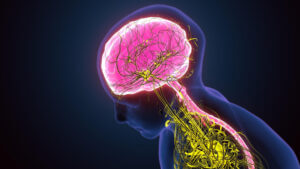Busy professionals are well aware of problems like chronic lack of concentration, declining energy levels, and high-stress levels. Furthermore, individuals involved in cognitive tasks are at a higher risk of experiencing burnout – physical, emotional or mental exhaustion, accompanied by decreased motivation, lowered performance and negative attitudes towards oneself and others.
There could be many reasons why so many professionals experience a lack of energy. They often experience stress. The human brain is an energy-hungry organ. Further, many professionals might be busy, but they are not essentially physically active.
Poor dietary choices also add to the problem. However, when there are many tasks at hand, people might not have enough time for dietary planning. Busy professionals may often eat readily available food without considering its nutritive value. Moreover, those living with stress are more likely to choose foods high in calories yet deficient in micronutrients.
Thus, this guide is for you if you are a busy professional and have been feeling drained out lately. Afterall, most professionals encounter burnout sometime during their careers. Tweaking your dietary habits and boosting your intake of specific nutrients may help re-energize and overcome stress and fatigue.
Focus on boosting energy levels
Busy professionals lack time to plan things, including dietary planning. This only makes things worse, causing a lack of energy and fatigue. If it is not handled in time, it may lead to severe burnout and even depression. Below are some ways to stay energized throughout the day:
Stay hydrated
Studies suggest that many adults in the US are poorly hydrated. Here we are not talking about some severe dehydration but rather about poor hydration levels leading to fatigue and poor performance. Not only that, studies even suggest that low hydration level slows down metabolic rate and significantly increases the risk of obesity.1
One way to stay hydrated is by drinking water throughout the day. Additionally, choose healthy beverages like green tea over sugary drinks. Remember that low-level chronic dehydration does not essentially produce many signs, but it still accelerates aging and reduces performance.
Increase intake of dietary fiber
Make a significant change in this aspect. Start consuming more grains, lentils, and veggies to boost energy levels. These foods are moderately high in calories, a good source of dietary fiber, and rich in vitamins and minerals.
Pay particular attention to the intake of dietary fibers. They boost gut motility, microbiota, enhance mood, promote metabolic health, and more. Multiple suggest that the Western diet is low in dietary fiber.2
Some foods to boost dietary fiber intake include chickpeas, oats, lentils, apples, almonds, chia seeds, avocados, and brussels sprouts. Using health supplements may also help, though it is always good to get dietary fiber through diet.
Consume food rich in B-vitamins
These are a group of water-soluble vitamins. These vitamins are particularly important for energy production and nerve health. They are involved in converting carbohydrates, proteins, and fats from the food we eat into usable energy.
Here are some examples of B vitamin-rich foods:
- Thiamine (B1): Whole grains, lean pork, sunflower seeds, legumes (beans, lentils), and nuts.
- Riboflavin (B2): Dairy products (milk, yogurt, cheese), lean meats (chicken, turkey), eggs, and leafy greens.
- Niacin (B3): Poultry (chicken, turkey), fish (tuna, salmon), peanuts, mushrooms, and whole grains.
- Pantothenic Acid (B5): Organ meats (liver, kidney), eggs, avocados, mushrooms, and broccoli.
- Pyridoxine (B6): Chickpeas, bananas, salmon, chicken breast, potatoes, and spinach.
- Biotin (B7): Eggs, nuts (almonds, walnuts), seeds (sunflower seeds, chia seeds), and sweet potatoes.
- Folate (B9): Leafy greens (spinach, kale), legumes, citrus fruits, asparagus, and fortified grains.
- Cobalamin (B12): Animal products like meat, poultry, fish, eggs, and dairy products. For vegetarians and vegans, fortified plant-based milk, nutritional yeast, and certain algae products may be sources of B12.
Here it is worth noticing that the body has a very limited capacity to store these vitamins; thus, they quickly get depleted during periods of high stress.3
Another problem with these vitamins is that some of these vitamins are only abundant in specific kinds of food, like vitamin B12 is absent in veggies. So, getting a regular supply of B vitamins is challenging. That is why intermittent supplementation of these vitamins is also a good option.
Finally, remember that these vitamins can have some incredible health benefits at higher dosages. They are suitable for nerves, energy production, detoxification, and even help manage mood disorders.4–6
Increase intake of lean protein
This essentially means poultry, fish, chicken, dairy, and more. These foods are good sources of high-quality proteins that help build muscles and regenerate. It is something well-known to most people. However, many people and health experts tend to ignore the health benefits of specific amino acids, especially when taken in large numbers.
Proteins or amino acids are not just for building muscles or regenerative processes. They are needed for the production of peptides, signaling molecules, neurotransmitters, and more.
Additionally, it is vital to understand that apart from 20 protein-forming amino acids, the body needs many other amino acids to function correctly. Even protein-forming amino acids may help boost metabolism, play a role in detoxification, boost immunity, and more.7
Just take the example of ornithine. This amino acid does not form proteins. However, it helps remove excess ammonia and plays a vital role in liver detoxification.8
Another good example could be glutamine. It is commonly found in various foods, and even the human body can produce it. However, glutamine supply often remains short, more so during periods of stress due to its wide-ranging roles in the body. It promotes healing, boosts immunity, improves brain function, and plays a vital role in detoxification of the body.9
All this means that high protein intake, supplements, or the use of specific amino acids may provide some unique health benefits.
Consider foods high in antioxidants
It is another widely discussed topic these days and for a reason. Due to continuous stress, the body gets depleted of antioxidants. This may result in higher inflammation and an increased risk of chronic ailments.
The human body does produce antioxidants to counter free radicals. For example, glutathione is one of the most vital mitochondrial antioxidants and is described as a key to survival.10 Therefore, supplementing glutathione is highly beneficial for health.
There are many molecules with antioxidant properties, like vitamin C, E, selenium, lutein, zeaxanthin, resveratrol, lycopene, and many more. Increasing dietary intake of antioxidants can help the body fight oxidative stress.11
Antioxidants help slow down aging, prevent chronic health issues, counter fatigue, boost performance, and much more. Therefore, consume more berries and nuts, which are among the better antioxidant sources.
Include NO boosters in the diet
In recent years, this small molecule has gained much attention as researchers realize that it plays an important role in dilating blood vessels, improving blood flow to various organs, controlling blood pressure, improving mood, mental abilities, and more.
NO play a vital role in heart health, sexual function, physical performance and recovery, concentration, and brain health. Therefore, to enhance productivity and performance, it is essential to consume foods high in NO or foods that promote their production by the body.12
When it comes to boosting NO production, there are many ways. For example, beetroot juice is known to increase NO levels due to its content of nitrates.13 Similarly, foods high in arginine and citrulline enhance NO production. These two amino acids are precursors for NO production.12
One can either increase intake of these amino acids through a high protein diet or even through certain fruits like watermelon, which is high in citrulline. Alternatively, one can take oral supplements containing these amino acids. Additionally, IV therapy containing these amino acids may provide a quick performance boost.
Boost cognition and brain health
Most people are engaged in mental work these days. Thus, busy professionals must ensure that their diet contains nutrients for cognitive health. Moreover, better brain health and mood translate into better physical health.
Although focusing on physical health is good, it is vital not to neglect brain health. In recent decades, there has been a significant upsurge in brain disorders. Brain issues like dementia are on the rise. Faster brain aging is causing many problems. Alzheimer’s is now among the leading cause of death and disability. Depression is widespread, affecting a significant number of people.
Most brain disorders are challenging to treat. Modern medicine is helpless, and no known drug can effectively prevent issues like depression or dementia.
However, researchers now think that the only way to prevent brain disorders is to start early. Most issues like dementia or depression start years before they are officially diagnosed. Therefore, lifestyle interventions like exercise, dietary measures, and nutrition therapy are the key to preventing these issues. However, all these measures must begin early enough. Since once these diseases have been diagnosed, much damage has already occurred, and reversing brain damage is challenging.
There are many nutrients that people must focus on. These nutrients can help boost brain health significantly. For example, one may boost the brain’s energy production by increasing niacin and tryptophan intake, thus boosting NAD+ production. Alternatively, one can even consider intermittent NAD+ IV therapy.14
Similarly, one can boost the intake of specific amino acids known to enhance performance and have cytoprotective properties. One such wonderful amino acid is taurine. It is commonly added to energy drinks. However, many people do not know that it has multiple health benefits. It is even approved for treating congestive heart failure in Japan since it boosts the heart’s ability to pump blood.15
But not only that, studies show that taurine is suitable for enhancing physical performance, mental health, brain function, and managing mitochondrial dysfunction. It has an energizing effect. It can help alleviate fatigue. Thus, it is good for both physical health and cognition. Additionally, due to its impact on metabolic health, it may even help prevent diabetes, inflammatory diseases, and more.15
One can also boost cognition by increasing essential fatty acids like omega-3s and alpha lipoid acid intake. Lipoid acid is particularly good for improving blood flow to nerves, reducing oxidative stress, and enhancing nerve conduction. Alpha-lipoic acid even helps manage peripheral neuropathies since it promotes nerve growth.16
This article has already discussed the vitality of B vitamins. However, it is essential to understand that they not only help boost metabolism or have an energizing effect. B vitamins are highly important for nerve health. Their deficiency causes inflammation and a decline in nerve health. A higher intake of B vitamins, especially pyridoxine, and B12, is highly beneficial for cognition.17
When experiencing cognitive decline or mental health issues, it is always better to consider IV therapy with B vitamins. This is because the human body has a limited ability to absorb these vitamins. Moreover, in many people living with gastritis, and intestinal issues, B vitamins may not absorb even in sufficient amounts.
Finally, when we speak of cognition, it is vital to understand that the human brain has limited regenerative abilities. Hence, it is crucial to maintain nerve cells in optimal health. Prolonged neglection of brain health may result in the death of more brain cells than the body can revive or regenerate, causing brain disorders.
The only way to keep cognition intact is to take care of brain cells. And it should be a life-long endeavor and something that must be started early. Hence, busy professionals must pay particular attention to their brain health.
Boost defensive powers or Immunity
One of the primary reasons for people being absent from work is illness. Chronic diseases to seasonal ailments cause significant work loss. Nonetheless, it is no secret that some people seem to be relatively immune to various infections and seasonal illnesses. This is because some people have better immunity.
The human immune system is very dynamic. It is changing all the time and adapting to new challenges. This is good news, since it means that most people can boost immunity through healthy lifestyle choices and nutrition therapy.
One of the most effective ways of boosting immunity is by consuming foods rich in antioxidants, vitamins, and minerals. Thus, a higher intake of fruits and vegetables can boost immunity. One would also benefit from a higher intake of lean proteins, rich in essential amino acids.
Increasing the intake of specific herbals known to boost immunity, like garlic, ginger, turmeric, and some mushrooms like Reishi is also a good idea.
Though many nutrients are essential for the proper working of the immune system, two of them are worth mentioning. These are vitamin C and zinc.
When it comes to immune health, vitamin C is among the most important vitamins. It helps in multiple ways. For example, it enhances epithelial barrier function and promotes wound healing. It increases collagen production. Further, it directly impacts immune cells, thus boosting immunity.18
Vitamin C can even help you recover from infections. One of the most extensive studies that analyzed the data from various clinical trials done in the last 70 years found that vitamin C helps recover faster from a common cold.19
But there is more to this wonderful vitamin, which keeps surprising researchers. Studies suggest that at higher dosages, it may have some unique benefits. For example, researchers are not testing high-dose IV vitamin C for managing cancer patients.20
However, it is worth understanding that vitamin C is well absorbed in commonly used dosages, but its bioavailability declines at higher dosages. Thus, even a high oral dose sometimes fails to provide benefits. However, vitamin C IV therapy allows for achieving much higher serum levels of the vitamin, resulting in unique health benefits.21
When it comes to boosting immunity, trace element zinc is highly useful. Its deficiency may cause a significant decline in immunity, making people prone to seasonal ailments. Zinc boosts immunity in many ways.22
Zinc has also received renewed interest as some studies suggest it may help manage more severe infections like Covid-19. It is good for boosting immunity, reduces inflammation, and has antioxidant properties. Of course, it is not a magic bullet, but it may help a person recover faster.23
Conclusion
There are many ways of boosting productivity and performance. For a person to stay active, taking care of both physical and mental health is vital. There are multiple ways of achieving this, like exercise, adequate sleep, and nutrition therapy.
Busy professionals often face challenges such as lack of concentration, low energy levels, and high stress. These issues can lead to burnout and impact their overall well-being. Poor dietary choices, lack of physical activity, and stress contribute to these problems. However, there are natural ways to boost immunity and regain energy levels.
Staying hydrated is essential for combating fatigue and maintaining optimal performance. Increasing dietary fiber intake through grains, lentils, and vegetables can boost energy levels and improve gut health. Consuming foods rich in B vitamins, such as whole grains, lean meats, eggs, and leafy greens, supports energy production and nerve health.
Including antioxidants in the diet helps combat inflammation and reduces the risk of chronic diseases. Berries and nuts are excellent sources of antioxidants. Incorporating foods that boost nitric oxide (NO) production, like beetroot juice and arginine-rich foods, improves blood flow, mental abilities, and overall performance.
Maintaining cognitive health is crucial for busy professionals. Nutrients like niacin, tryptophan, taurine, and essential fatty acids, found in various foods or through IV therapy, support brain function, energy production, and nerve health. B vitamins, particularly pyridoxine, and B12, play a vital role in cognition and should be supplemented if necessary.
Enhancing the body’s defensive powers or immunity is crucial to prevent illness and improve overall health. Increasing the intake of fruits, vegetables, lean proteins, and specific immune-boosting herbs like garlic, ginger, and turmeric supports the immune system. Vitamin C and zinc are particularly important for immune health and can be obtained through diet or supplementation.
By making conscious dietary choices and incorporating these strategies, busy professionals can boost their energy levels, overcome stress and fatigue, enhance cognitive function, and strengthen their immune systems. Prioritizing these natural approaches to well-being can lead to improved overall health and productivity in the long run.
References
- Chang T, Ravi N, Plegue MA, Sonneville KR, Davis MM. Inadequate Hydration, BMI, and Obesity Among US Adults: NHANES 2009–2012. The Annals of Family Medicine. 2016;14(4):320-324. doi:10.1370/afm.1951
- Lattimer JM, Haub MD. Effects of Dietary Fiber and Its Components on Metabolic Health. Nutrients. 2010;2(12):1266-1289. doi:10.3390/nu2121266
- Services D of H& H. Vitamin B. Accessed June 25, 2023. http://www.betterhealth.vic.gov.au/health/healthyliving/vitamin-b
- Altun I, Kurutaş EB. Vitamin B complex and vitamin B12 levels after peripheral nerve injury. Neural Regeneration Research. 2016;11(5):842. doi:10.4103/1673-5374.177150
- Lewis JE, Tiozzo E, Melillo AB, et al. The Effect of Methylated Vitamin B Complex on Depressive and Anxiety Symptoms and Quality of Life in Adults with Depression. ISRN Psychiatry. 2013;2013:1-7. doi:10.1155/2013/621453
- Blackman A, Boutin A, Shimanovsky A, Baker WJ, Forcello N. Levocarnitine and vitamin B complex for the treatment of pegaspargase-induced hepatotoxicity: A case report and review of the literature. J Oncol Pharm Pract. 2018;24(5):393-397. doi:10.1177/1078155217710714
- Allowances NRC (US) S on the TE of the RD. Protein and Amino Acids. In: Recommended Dietary Allowances: 10th Edition. National Academies Press (US); 1989. Accessed June 25, 2023. https://www.ncbi.nlm.nih.gov/books/NBK234922/
- Ndraha S, Simadibrata M. Normal protein diet and L-ornithine-L-aspartate for hepatic encephalopathy. Acta Med Indones. 2010;42(3):158-161.
- Glutamine Information | Mount Sinai – New York. Mount Sinai Health System. Accessed June 25, 2023. https://www.mountsinai.org/health-library/supplement/glutamine
- Marí M, Morales A, Colell A, García-Ruiz C, Fernández-Checa JC. Mitochondrial Glutathione, a Key Survival Antioxidant. Antioxid Redox Signal. 2009;11(11):2685-2700. doi:10.1089/ars.2009.2695
- Antioxidants: In Depth. NCCIH. Accessed June 25, 2023. https://www.nccih.nih.gov/health/antioxidants-in-depth
- KIANI AK, BONETTI G, MEDORI MC, et al. Dietary supplements for improving nitric-oxide synthesis. J Prev Med Hyg. 2022;63(2 Suppl 3):E239-E245. doi:10.15167/2421-4248/jpmh2022.63.2S3.2766
- Domínguez R, Cuenca E, Maté-Muñoz JL, et al. Effects of Beetroot Juice Supplementation on Cardiorespiratory Endurance in Athletes. A Systematic Review. Nutrients. 2017;9(1):43. doi:10.3390/nu9010043
- Zhao Y, Zhang J, Zheng Y, et al. NAD+ improves cognitive function and reduces neuroinflammation by ameliorating mitochondrial damage and decreasing ROS production in chronic cerebral hypoperfusion models through Sirt1/PGC-1α pathway. Journal of Neuroinflammation. 2021;18(1):207. doi:10.1186/s12974-021-02250-8
- Schaffer S, Kim HW. Effects and Mechanisms of Taurine as a Therapeutic Agent. Biomol Ther (Seoul). 2018;26(3):225-241. doi:10.4062/biomolther.2017.251
- Alpha-lipoic acid Information | Mount Sinai – New York. Mount Sinai Health System. Accessed June 25, 2023. https://www.mountsinai.org/health-library/supplement/alpha-lipoic-acid
- Kennedy DO. B Vitamins and the Brain: Mechanisms, Dose and Efficacy—A Review. Nutrients. 2016;8(2):68. doi:10.3390/nu8020068
- Carr AC, Maggini S. Vitamin C and Immune Function. Nutrients. 2017;9(11):1211. doi:10.3390/nu9111211
- Hemilä H, Chalker E. Vitamin C for preventing and treating the common cold. Cochrane Database of Systematic Reviews. 2013;(1). doi:10.1002/14651858.CD000980.pub4
- Mussa A, Mohd Idris RA, Ahmed N, et al. High-Dose Vitamin C for Cancer Therapy. Pharmaceuticals (Basel). 2022;15(6):711. doi:10.3390/ph15060711
- Lykkesfeldt J, Tveden-Nyborg P. The Pharmacokinetics of Vitamin C. Nutrients. 2019;11(10):2412. doi:10.3390/nu11102412
- Maares M, Haase H. Zinc and immunity: An essential interrelation. Archives of Biochemistry and Biophysics. 2016;611:58-65. doi:10.1016/j.abb.2016.03.022
- Pal A, Squitti R, Picozza M, et al. Zinc and COVID-19: Basis of Current Clinical Trials. Biol Trace Elem Res. 2021;199(8):2882-2892. doi:10.1007/s12011-020-02437-9













